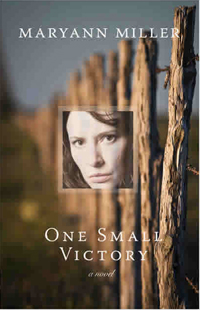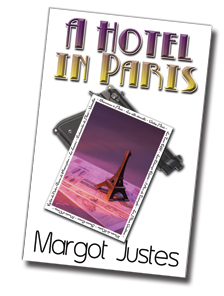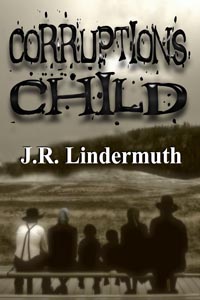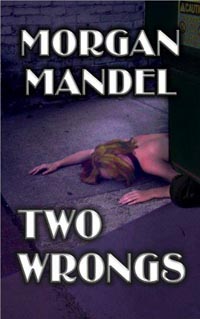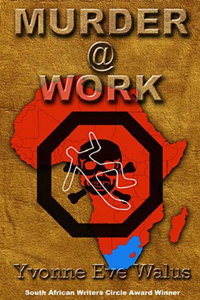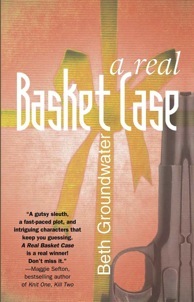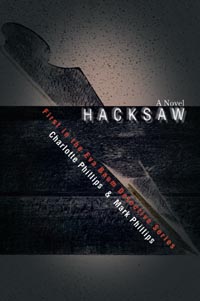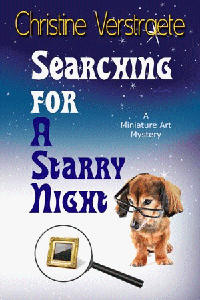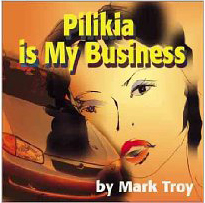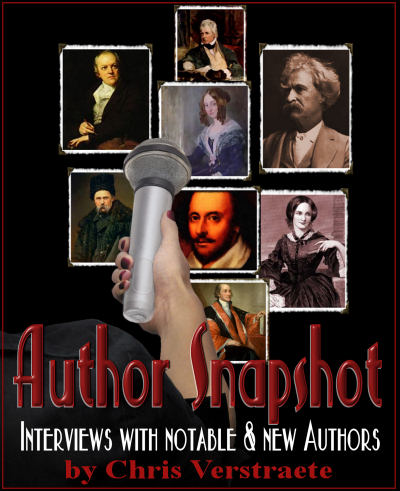 |
Judging a Book By Its Title
With a book being a writer's "baby" so to speak, it's not surprising that the same care given to naming a child is used when naming a book. Or at least it should be. Besides the cover art and blurbs, the book's name, the main title, often can be a detracting point or a real draw. Some authors, of course, especially those with large publishing houses, often have little say in what their book is named and only hope that it isn't too vague, actually fits the story or isn't the same as another book (or other books as often happens.). Authors with smaller presses usually have input on their book's name and other attributes, and are fortunate to have the name they liked usually picked for publication. First they have to decide on one, of course. You never know what will trigger a good book name, be it a song, a poem, or usually a line or some aspect of the story itself. Maryann Miller, author of ONE SMALL VICTORY (Five Star Gale/Cengage June 2008), feels that a story should "answer" the title.
"This one certainly does," she says. "The title came to me almost right away when I started writing the story. Jenny, the central character, infiltrates a drug ring and helps bring down the main distributor in the area. The title is meaningful in that she does this after losing her son in a car accident. What she does is her small victory over death. Luckily, my publisher agreed and did not ask to change the title." Vivian Gilbert Zabel also drew from her book's theme when she picked the title for MIDNIGHT HOURS (4RV Publishing, June 2008). "I love the title," she says. The title is based "on the story of a mysterious woman who calls herself Midnight because of the time she comes online."
To author Margot Justes, the title of her book, A HOTEL IN PARIS, (Echelon Press, 2008), was partly inspired by her own love of travel. " I love staying in hotels, and wondered what would happen if someone was murdered," she explains. "How would a long-term guest, who considers it her home, handle the situation? I love the title, it fits the book perfectly. Think of the romance, the travel and what can, and does, happen in a Parisian hotel. It is the perfect setting for a romantic suspense tale."
John R. Lindermuth also chose the titles for the books in his Sticks Hetrick series. The first title, SOMETHING IN COMMON (Whiskey Creek Press, June 2006), was inspired by a quote from his character, Sticks: “ Like lovers, criminals and their victims always have something in common.”
Other book titles were inspired by elements of the stories, he says: "'Cruel Cuts,' the second book, was a reference partly to animal mutilations at the beginning of the book and also to the way in which certain characters treat others. 'Corruption's Child,' the third book, got its title from an obscure poem by William Blake which Sticks reads at one point and relates to a central character." Of course, sometimes the first choice isn't always the right choice. Several authors admitted that their first title pick wasn't, thankfully, their last – and often for a good reason. Morgan Mande, author of TWO WRONGS (Hard Shell Word Factory, 2006), decided not to go with her original title to avoid confusion.
"At first I chose the title 'Dead Wrong' because it's a story about the consequences when a young man mistakenly accuses the wrong person of murder, then I noticed someone already had the title," she says. "I thought maybe 'Two Wrongs' would stick out in people's minds because they would tie it in with the saying , 'two wrongs don't make a right.' Also, the title reflected the affect of vengeance on both the lives of the accuser and the accused." Yvonne Eve Walus, author of MURDER @ WORK, (Echelon Press, 2004) began with the working title, "Death by Fragrance." Okay, but lucky for her, the thread of the story prompted a new idea which ended in a much catchier title. "I had quite a few emails in the story and the murder happens at work," she says. "I liked the pun.
Beth Groundwater also used puns to title the books in her mystery series featuring a gift basket designer, A REAL BASKET CASE (Five Star, March 2007, Agatha Award nominee, Best First Novel) and TO HELL IN A HANDBASKET (Five Star, May 2009). But she also had to change her initial title after doing an online search.
"I wanted the word 'basket' in both because of the occupation of my amateur sleuth," she says. "The working title of my first one was BASKET CASE, but when I searched for that title on Amazon before finalizing the title selection, I saw Carl Hiassen's BASKET CASE and Ralph McInery's THE BASKET CASE. I didn't want to compete with either of those authors, so I settled on the full phrase, 'The Real Basket Case.' As for the sequel, there is Donna Moore's HELENA HANDBASKET, but hopefully that's different enough to prevent confusion. I try to have a character say the title phrase in context fairly early on in chapter one or two, which is fun both for me to figure out and for the reader to read." Sometimes the book's title was supposed to be temporary, as in the case of HACKSAW (iUniverse, 2007) by Charlotte and Mark Phillips. Charlotte had hoped it was, but something happened.
"This was supposed to be just the working title, but it grew on us," says Charlotte . "In the book, Hacksaw is the name newspapers give to the bad guy, so it fits. But I hated it. My main issue with it was that it sounded more like a horror title than a mystery. Mark added, 'First in the Eva Baum Detective Series" to clear things up. That seemed to work, so we went with it." Amusingly enough, they had decided on a title but… "It came back with a gorgeous cover - but the weapon displayed is not a hacksaw," Charlotte says. "We again considered changing the title, but in the end stuck with a title that now felt like a part of the book." Christine Duncan is one of those authors who chose her title because it fit the book perfectly, but she admits doing so with some hesitation.
"I picked the title, SAFE HOUSE (Writer's Exchange e-publishing, May 2008), (and the previous, 'Safe Beginnings') because a shelter for domestic violence victims (where my books are set) is called a safe house in many parts of the US ," she says. "'The Safe Beginnings' title came from the idea that these women were making new beginnings. "I'm not thrilled with 'Safe House' since so many books have already come out under that name and not many of them have to do with domestic violence. The thing is that it's such a juggling act. The cover needs to suggest something about the book's setting, I think, but also about the genre and sub-genre." Of course, sometimes a title can be unique, but the meaning might not be immediately clear until you study the blurb and photo. I still think that the title of my book, SEARCHING FOR A STARRY NIGHT, A Miniature Art Mystery by Christine Verstraete (Quake/Echelon Press, June 2008) was a good choice, albeit a mouthful. The title refers to the book's plot involving the search by best friends Sam and Lita for a missing miniature replica of Van Gogh's famous painting, "Starry Night."
Author Mark Troy also likes to pick unusual titles. They describe his work, but do require a little more explanation than usual.
"I have mixed feelings about it, " he says of his novel title, 'PILIKIA IS MY BUSINESS (formerly LTD Publishing, but still available at Amazon.com). "On the one hand, it gets to the heart of the book; on the other hand, most people don't know what it means and they mangle the pronunciation. Pilikia (pronounced p-lee-key-ah).means 'trouble' in the Hawaiian language. "To those in the know, the title gives the location ( Hawaii ) and something about the theme and mood," he continues. "It translates into 'Trouble Is My Business,' the title of a Raymond Chandler story and the job description of the fictional private eye. Chandler located his private eye in what was, in his time, the western-most U.S. city— Los Angeles . I located my private eye in what is now the western-most U.S. However most people miss the connection." Clever, but does it require too much explanation? Maybe, maybe not, but Troy admits that he still seems to prefer unusual titles. The latest work looking for a publisher is called "The Law of the Splintered Paddle," which refers to an ancient Hawaiian law guaranteeing the protection of the defenseless. "I chose it because it cuts to the theme of the book," he says. "I hope people don't think the book is about a fraternity rite gone bad. If they think the book is about canoes, they could be forgiven, but they would still be wrong. My work in progress is about canoes and the working title is 'Canoe.' I think I'm getting better at titles." |
|
|
Past issues and stories
pre 2005.
Subscribe to our mailing
list for announcements.
Submit your work.
Advertise with us.
Contact us.
Forums, blogs, fan clubs,
and more.
About Mysterical-E.
Listen online or download
to go.
|
|
|
 |
 |


